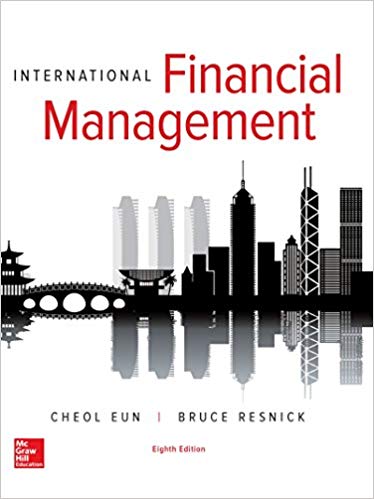Nike, a company headquartered in Beaverton, Oregon, is a major force in the sports footwear and fashion
Question:
Nike, a company headquartered in Beaverton, Oregon, is a major force in the sports footwear and fashion industry, with annual sales exceeding $ 30 billions, more than half of which now come from outside the United States. The company was co-founded in 1964 by Phil Knight, a CPA at Price Waterhouse, and Bill Bowerman, college track coach, each investing $ 500 to start. The company, initially called Blue Ribbon Sports, changed its name to Nike in 1971 and adopted the “Swoosh” logo—recognizable around the world—originally designed by a college student for $35. Nike became highly successful in designing and marketing mass-appealing products such as the Air Jordan, the best selling athletic shoe of all time. Nike has no production facilities in the United States. Rather, the company manufactures athletic shoes and garments in such Asian countries as China, Indonesia, and Vietnam using subcontractors, and sells the products in the U.S. and international markets. In each of those Asian countries where Nike has production facilities, the rates of unemployment and under-employment are relatively high. The wage rate is very low in those countries by U .S. standards—the hourly wage rate in the manufacturing sector is less than $ 2 in each of those countries, compared with about $ 35 in the United States. In addition, workers in those countries often operate in poor and unhealthy environments and their rights are not particularly well protected. Understandably, host countries are eager to attract foreign investments like Nike’s to develop their economies and raise the living standards of their citizens. Recently, however, Nike came under worldwide criticism for its practice of hiring workers for such a low rate of pay—“next to nothing” in the words of critics—and overlooking poor working conditions in host countries. Initially, Nike denied the sweatshop charges and lashed out at critics. But later, the company began monitoring the labor practice at its overseas factories and grading the factories in order to improve labor standards. Nike also agreed to random factory inspections by disinterested parties. Discussion points Do you think the criticism of Nike is fair, considering that the host countries are in dire needs of creating jobs? What do you think Nike’s executives might have done differently to prevent the sensitive charges of sweatshop labor in overseas factories? Do firms need to consider the so-called corporate social responsibilities in making investment decisions?
Step by Step Answer:

International Financial Management
ISBN: 978-1259717789
8th edition
Authors: Cheol Eun, Bruce G. Resnick





